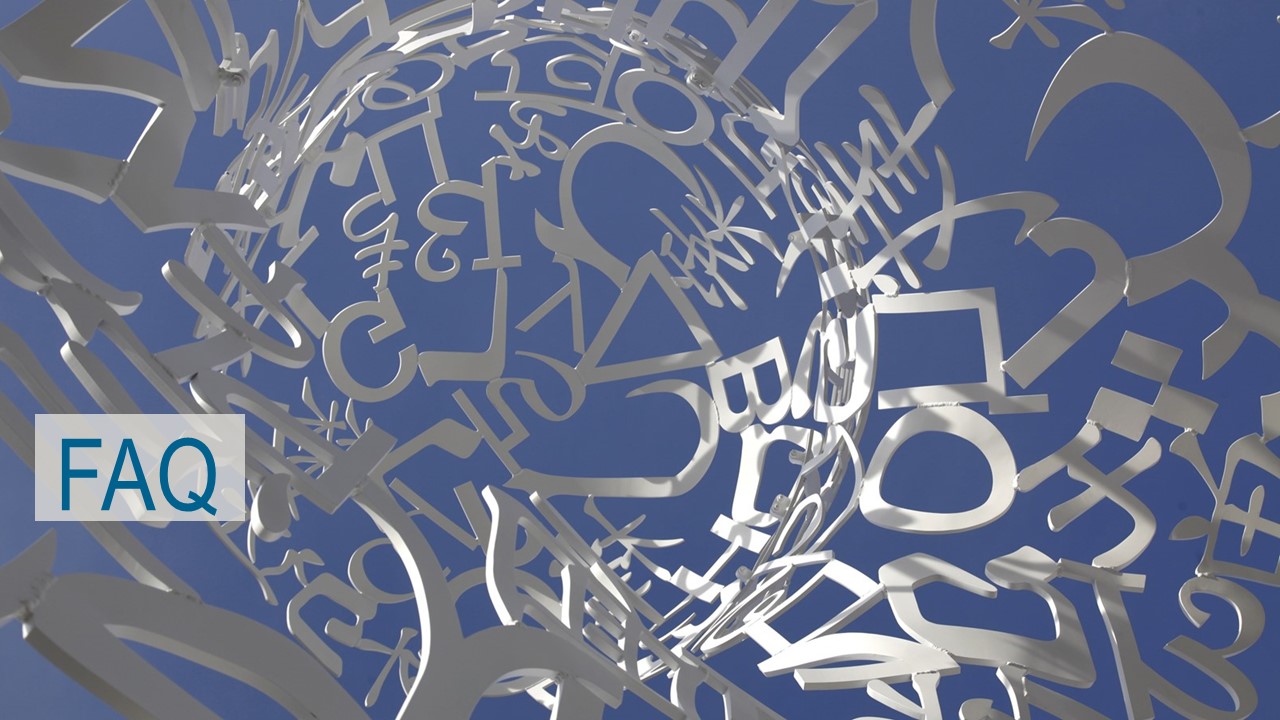What types of courses are there?
What does the designation seminar with proseminar mean?
In the new study regulations of 2022, there are only seminars. In the old study regulations from 2014 and 2015, there were still proseminars in the Bachelor's degree. Since courses are currently still open for the old study regulations, the designation "seminar with proseminar" still exists.
Can I also take lectures instead of seminars?
As far as it seems justifiable from the point of view of university didactics, a lecture can also be offered instead of a seminar. There are no differences to seminars in terms of module performance. You can therefore also attend lectures if they are scheduled for a module in the course catalogue.
How do I register for courses?
See page "Registering for courses".
How do I create a timetable?
Take a look at the Learning Bar. Here you will find a video on the organisation of studies for your degree programme and also a video on the LSF.
What do I have to consider if I want to open a course for another module?
You can only apply to open a course for further modules using the form provided for this purpose. After all the required sections have been filled in, the form must be passed on to the respective course coordinators, who will make the decision on the content (see the description on our website for more detailed instructions). As soon as possible, the open courses will then be published on the website.
Please note, however, that there are some formal exclusion criteria: only openings for courses of the Department 03 can be applied for. Exceptions apply to the Master Political Theory. It is also necessary to check which course type is provided for the respective module according to the study regulations and whether the selected course corresponds to this. For example, proseminars cannot be opened for a Master's programme. Finally, a course can only be opened for a maximum of three modules within a degree programme.
- Propaedeutic: Introductory course for first-year students, which is intended to provide an overview of the degree programme. The propaedeutic course is held as a lecture with compulsory weekly exercises.
- Lecture: Lecture by a teacher lasting 60 - 70 minutes. This is usually followed by a discussion.
- (Pro)seminars are events in which students discuss texts they have read. Often, presentations by students serve as an introduction, which are then discussed under the moderation of the teacher.
- Tutorials: In tutorials, the number of students is smaller and the content-related work is more intensive due to the smaller group. Tutorials are usually attached to lectures and proseminars and are led by advanced students. They also provide assistance with academic work.
- Autonomous tutorials are tutorials organised by students themselves on topics they have chosen themselves. These are usually social science topics that are not or hardly represented in the department.
- Colloquium: Event for the preparation and supervision of final theses.
What does the designation seminar with proseminar mean?
In the new study regulations of 2022, there are only seminars. In the old study regulations from 2014 and 2015, there were still proseminars in the Bachelor's degree. Since courses are currently still open for the old study regulations, the designation "seminar with proseminar" still exists.
Can I also take lectures instead of seminars?
As far as it seems justifiable from the point of view of university didactics, a lecture can also be offered instead of a seminar. There are no differences to seminars in terms of module performance. You can therefore also attend lectures if they are scheduled for a module in the course catalogue.
How do I register for courses?
See page "Registering for courses".
How do I create a timetable?
Take a look at the Learning Bar. Here you will find a video on the organisation of studies for your degree programme and also a video on the LSF.
What do I have to consider if I want to open a course for another module?
You can only apply to open a course for further modules using the form provided for this purpose. After all the required sections have been filled in, the form must be passed on to the respective course coordinators, who will make the decision on the content (see the description on our website for more detailed instructions). As soon as possible, the open courses will then be published on the website.
Please note, however, that there are some formal exclusion criteria: only openings for courses of the Department 03 can be applied for. Exceptions apply to the Master Political Theory. It is also necessary to check which course type is provided for the respective module according to the study regulations and whether the selected course corresponds to this. For example, proseminars cannot be opened for a Master's programme. Finally, a course can only be opened for a maximum of three modules within a degree programme.
- Studying at Goethe University
- International applicants
- Faculties
- Overview of study programmes
- Programme for refugees
- GRADE
- Goethe Business School (continuing education)
- Research at Goethe University
- Scientific news
- Goethe Welcome Center (for international researchers)
- Collaborative research projects
- Individual research
- Visiting fellowships
- Endowed chairs
- About the University
- News-in-brief
- University administration
- Campus locations
- Campus life
- University archives (German)
- Rhine-Main-Universities





